What can a pandemic teach us about nuclear threats?
By Ted Lieu | August 7, 2020
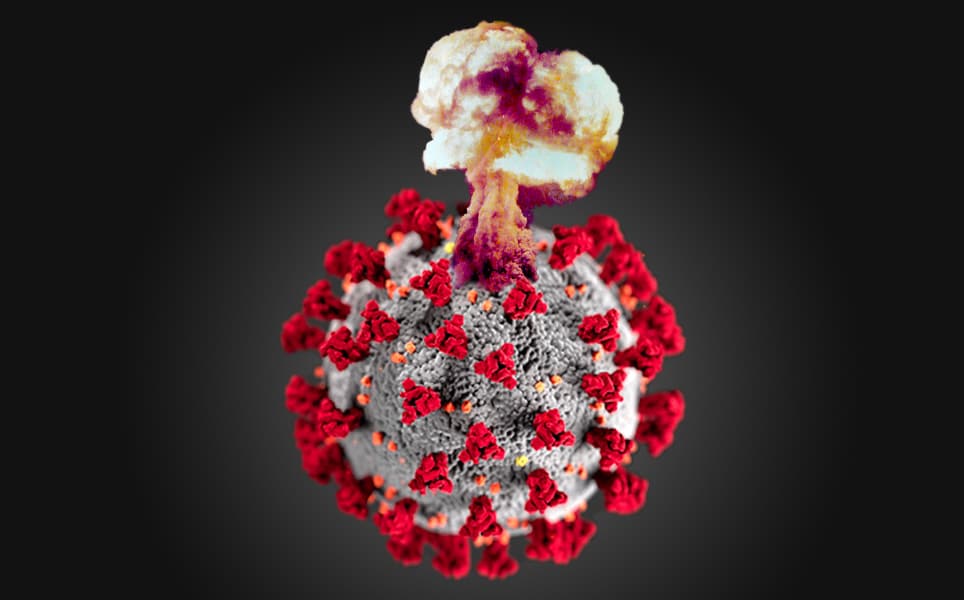
When Barack Obama became the first US president to visit Hiroshima in 2016, he stated: “Technological progress without an equivalent progress in human institutions can doom us.” Those words ring true today. At the 75th anniversaries of the bombings of Hiroshima and Nagasaki, we stand in another moment of global chaos and profound loss.
Over 700,000 people worldwide have died from COVID-19, including over 160,000 in the United States. SARS-CoV-2 spread like wildfire in part due to global and domestic travel made far easier by technological progress. At the same time, failures in human institutions allowed the virus to escalate out of control in numerous places.
The lessons learned from this pandemic make the case for re-thinking the United States’ national security framework to decide which investments truly improve US national security and which seek to win yesterday’s wars. Who would have thought that the equipment needed to fight an enemy that has already killed far more Americans than died in World War I was not the Trident missile or B-1 Bomber, but face masks and ventilators? Or that the heroes risking their lives this year are health care workers and grocery store employees?
The United States has already learned three important lessons from its failed pandemic response that should inform its nuclear strategy, so it doesn’t repeat similar mistakes in the future: investing in prevention is key; experts matter; and America needs to adjust to a new communications environment.
Investing in catastrophe prevention. Until 2017, both Democratic and Republican administrations understood the importance of preventing a pandemic. Before leaving office, the Obama administration set up the White House National Security Council Directorate for Global Health Security and Biodefense. In 2005, President George Bush spoke at the National Institutes of Health and said, “If we wait for a pandemic to appear, it will be too late to prepare.” Indeed, one of the principal reasons for the existence of the Centers for Disease Control and Prevention, which was created in 1946, is “detecting and confronting new germs and diseases around the globe to increase our national security.”
Unfortunately, the Trump administration eliminated the NSC Directorate for Global Health Security and Biodefense in 2018. The administration declined to renew funding for a federal pandemic detection program in 2019. The administration also proposed budget cuts to the CDC. And the Trump Administration ignored a step-by-step guide the Obama administration created on how to prevent a pandemic.
China’s early actions—suppressing information about SARS-CoV-2 and providing misleading information about the virus—are indefensible. At the same time, the Trump administration’s lack of preparation for the pandemic left the United States flat-footed when the virus—as a result of global air travel—started pouring into America from Europe. Even today, there is no national testing strategy, no national contact and tracing program, and no national pipeline for personal protective equipment, forcing hospitals and states to compete with one another to secure PPE, sometimes at exorbitant prices.
Prevention is and always has been the best strategy when it comes to disasters, whether they come in the form of disease or war. Unfortunately, the current administration has taken actions that increase, rather than decrease, the risks of nuclear war. From cuts and disarray at the State Department to withdrawing from arms control treaties to making it easier to use nuclear weapons, the last few years have been a disaster for nuclear conflict prevention.
The case for a unified national security budget—one that strikes the right balance among our diplomatic, informational, military, and economic instruments of power to prevent conflicts—has never been stronger. Instead, the budgets under the Trump administration have prioritized military spending over all other instruments of national power. We can already destroy the world several times over with our nuclear and conventional weapons. It is time to invest in our other instruments of national power.
Unfortunately, in the last few years, our diplomatic capacity has withered. As a member of the House Foreign Affairs Committee, I have seen how, under the Trump Administration, the US State Department has been gutted, as employees depart and positions go unfilled; morale has fallen; and several ambassadors and the Secretary of State have come under investigation for inappropriate or illegal behavior. We need to reverse course and re-invest in a large, professional, and ethical diplomatic corps.
We have also seen an unfortunate shift towards go-it-alone US nuclear policy that expands the risk of miscalculation and escalation. Withdrawing from nuclear arms control treaties and expanding the capabilities of our nuclear arsenal are destabilizing. The Trump administration’s decisions to withdraw from Intermediate-Range Nuclear Forces (INF) Treaty last year, to announce its formal intent to withdraw from the Open Skies Treaty this year, and to lay the groundwork for allowing the New START Treaty to expire early next year all amount to a regressive policy that increases the chances of a nuclear conflict.
Similarly, the Trump administration’s decision to produce new low-yield warheads increases the risk that nuclear weapons will be used. And the use of a low-yield nuclear weapon can easily escalate a conflict to an all-out nuclear war that cannot be won. That’s one reason I and other members of Congress introduced the bicameral “Hold the LYNE Act” to prohibit low-yield nuclear weapons for submarine-launched ballistic missiles.
Instead of moving away from a prevention strategy, the United States needs to move toward one. Among the more obvious ways a catastrophic nuclear war could start is if a president launched a nuclear first strike. In October 2016, Sen. Ed Markey and I introduced the “Restricting First Use of Nuclear Weapons Act” to mitigate that possibility and to reassert the war making authority that the framers of the Constitution gave to Congress alone.
The current nuclear launch approval process gives the president the sole authority to decide whether and when to launch a nuclear first strike. No member of the cabinet, the judiciary, or Congress is required to be involved in that decision. And once the President orders the launch, the execution of the order would occur frighteningly fast.
The framers of the Constitution, however, went to great lengths to put checks and balances on the president. They created an entire judicial branch to check the president. They created a legislative branch to check the president. And then then gave the gravest power they knew at the time—the power to declare war—to Congress alone. There is no way the framers would have authorized one person to launch weapons that could kill hundreds of millions of people in less than an hour and not have called that war.
Our legislation enacts the vision of the framers and requires the president to get congressional authorization before launching a nuclear first-strike (except in cases when another country has already launched a nuclear weapon at the United States). Not only would our bill correct a constitutional defect, it would also reduce the incentive for other nuclear-armed countries to strike the United States.
Having served on active duty in the US Air Force, I have long understood that countries such as Russia and China have the capability to annihilate America with their nuclear weapons. One reason they don’t use those weapons is their understanding that no matter how many missiles they launch, the United States has a robust second-strike capability that would annihilate them in return.
Mutually assured destruction relies on strengthening second-strike capabilities; a first-strike option is not only unnecessary, it is destabilizing. If these countries believe an unhinged president could rapidly launch a nuclear first strike, their calculation changes, and they are forced into a “use it or lose it” scenario with their weapons. Our legislation injects the crucial elements of time and approval by Congress to slow down any potential nuclear escalation.
The United States knew the risks and failed to prevent the outbreak of a novel coronavirus from becoming a deadly pandemic. It cannot fail to prevent a diplomatic or conventional military conflict from becoming a cataclysmic nuclear war. The United States needs to invest in diplomacy, to stop withdrawing from arms control treaties, and to curb the production of nuclear weapons. Buying new nukes doesn’t make us safer; strengthened alliances and prioritized diplomacy do. There is strength in tackling problems before they arise, and America is living through what happens when prevention is underfunded or ignored.
The value of expertise. Another reason America leads the world in COVID-19 cases and deaths involves the failure of far too many people, including government officials, to listen to experts. Earlier this year, the Trump administration worked with medical experts and created a set of coronavirus guidelines for states to follow before they reopened businesses and other aspects of public life that had been restricted to slow the spread of COVID-19. What happened? Many states—and the president himself—ignored those guidelines. The president tweeted multiple times that various states should “liberate” themselves and reopen, even though none of those states met the reopening guidelines set forth by his own administration. As a result, COVID-19 cases and deaths started to spike again, and the virus continues to surge in many areas.
Medical experts have repeatedly told the American public to practice social distancing, wear masks in public, and avoid crowded indoor areas to help stop the spread of the virus. What happened? A number of Americans refused to wear masks in public, and the president spent those critical first months of the pandemic disparaging those who wore masks. It wasn’t until recently that the president reversed himself and finally said that people should wear them. A number of Americans engaged in dangerous behavior, like going to bars, indoor parties, and a presidential indoor rally where social distancing was not observed and masks were not required.
In many ways, this pandemic has taught us exactly what not to do in a nuclear-armed world where the Doomsday Clock says it is 100 seconds to midnight. We need to stop rejecting science. We need to prepare for worst-case scenarios. We need to listen to the experts screaming from the mountaintops that we’re not doing enough. Earlier this year, some argued that a robust pandemic response would cause the public to think that the government was over-reacting. In the case of a potential nuclear conflict, there is no such thing as being over-prepared.
Experts in academia, in the private sector, in government, and at the Bulletin of the Atomic Scientists have provided numerous common-sense recommendations for how to prevent a nuclear conflict, from strengthening command and control systems to reducing nuclear proliferation. We should listen to them. If the American people choose a new president in November, one of the first orders of business should be to re-invest in the State Department, put the United States back into arms control treaties, and to stop the production of low-yield nuclear weapons. And of course, ensure the “Hold the LYNE Act” and the “Restricting First Use of Nuclear Weapons Act” become law.
Adjusting to a new communications environment. Technological progress is a double-edged sword. Obviously, it was technological progress that resulted in nuclear weapons. The ease of global and domestic travel made possible by technology—from comfortable, fast aircraft to online booking sites—is what swiftly turned the novel coronavirus into a worldwide pandemic. At the same time, it is science and technology that will one day give us a vaccine or drug therapy to stop the pandemic.
In the area of communications, technology has advanced so rapidly that our institutions and citizenry have been caught off guard. For example, it can be difficult to know if a Facebook post was written by an American in your state—or a Russian agent in the Kremlin. US officials have alleged that Russia is actively participating in disinformation campaigns about COVID-19 in America, as well as hacking COVID-19 research centers. And with the existence of deep-fake technology, it is nearly impossible for ordinary Americans to know if a video they are seeing is reality or fantasy.
False information about the virus—whether created intentionally or unintentionally—routinely shows up on multiple social media platforms. The president—with over 84 million Twitter followers—has repeatedly tweeted or retweeted misleading information about COVID-19. In our current communications environment, a lie disguised as fact or a manipulated video can reach hundreds of millions of people in seconds. Add the fact that high-profile social media accounts were recently hacked, and it is easy to imagine potentially dangerous situations when it comes to nuclear conflict.
What happens if a hacker gains control of the president’s Twitter account and posts a tweet that leads foreign leaders to believe the president ordered a nuclear first strike? Or what if the hacker uses Twitter’s direct messaging function, so no one knows except the people who receive the direct message? What if someone posts a deep-fake video of North Korea launching a nuclear missile at Hawaii? What if Hawaii issues a nuclear missile alert from North Korea that instantaneously went to all cellphones?
Oh wait, that last one happened. And it caused a lot of people in Hawaii to panic. Some cars reportedly sped up to 100 miles per hour after the alert was issued. Tourists in Kaneohe were reportedly taken up to a bunker in the mountains. Officials at the Sony Open PGA Tour golf tournament on Oahu evacuated the media center, while staff sought cover in the players’ locker room. A man suffered a heart attack after saying what he thought were his last goodbyes to his children after the alert. And the 911 call system was overwhelmed, with many calls not being able to go through.
Technological advancements in communications have resulted in at least two consequences: one, information, whether true or false, can be distributed to a massive amount of people nearly instantaneously, and two, it is fairly easy to create false information that looks true. The first consequence will not be fixed, because there is often merit in being able to reach many people very quickly. Fixing the second consequence requires some combination of media literacy and better cyber security. Both consequences suggest that injecting more time and congressional authorization into nuclear situations is what is needed in our brave new advanced communications world.
Wake up. America’s failed response to the pandemic should serve as a wake-up call to our nation that we have become complacent in critical areas of national security. To the extent there was a nuclear component to the global war on terrorism, it was the fear of a terrorist network acquiring a nuclear weapon, smuggling it into the United States, and detonating it. With the 2017 National Security Strategy’s shift to great power competition, we have now turned our attention back to two nuclear powers with advanced delivery systems and track records of brazen behavior. We cannot afford to wait before we invest serious diplomatic capital to ensure none of our conflicts with China or Russia escalate to nuclear war.
Withdrawing from arms control treaties and buying easier-to-use nuclear weapons will not make us safer from nuclear conflict. Strengthening our alliances—our biggest competitive advantage over our adversaries—and showing up to lead coordinated diplomatic efforts will. At the same time, we can reduce the risk of nuclear conflict by requiring the president—any president—to seek authorization from Congress before launching a nuclear first strike.
We also need to listen to experts. To prevent a catastrophic disaster—whether a pandemic or a nuclear conflict—we need to stop rejecting facts and science. Unfortunately, the new world of instantaneous communications can make it more difficult to ascertain the truth. Government officials and the public need to adjust to this new environment. Lives are at stake.
Together, we make the world safer.
The Bulletin elevates expert voices above the noise. But as an independent nonprofit organization, our operations depend on the support of readers like you. Help us continue to deliver quality journalism that holds leaders accountable. Your support of our work at any level is important. In return, we promise our coverage will be understandable, influential, vigilant, solution-oriented, and fair-minded. Together we can make a difference.
Keywords: COVID-19, Coronavirus, Hiroshima, Nagasaki, pandemic
Topics: Biosecurity, Hiroshima & Nagasaki, Nuclear Weapons, Uncategorized
Share: [addthis tool="addthis_inline_share_toolbox"]
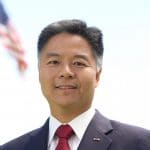

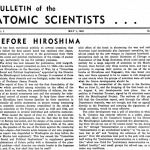



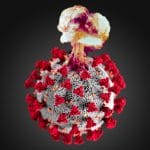
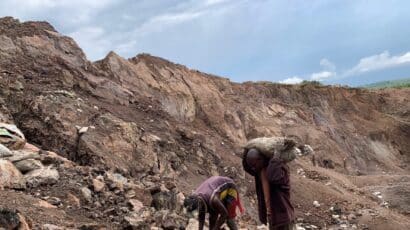

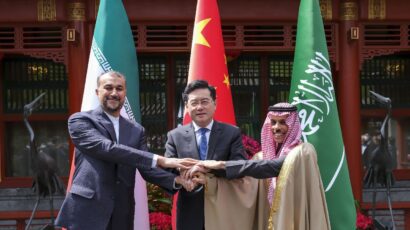

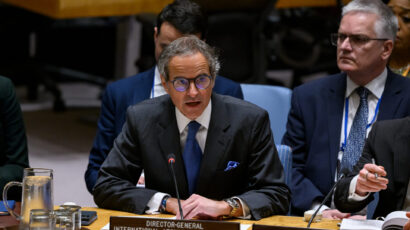
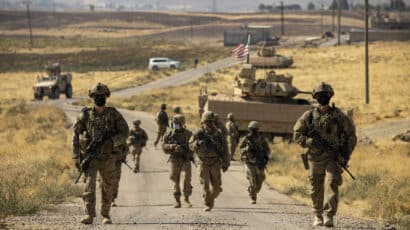

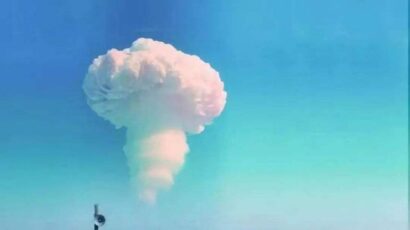
Great points, Rep. Lieu. Thanks for making these connections! Just like we should not be satisfied with simply controlling COVID-19, we should also not be satisfied with controlling nuclear arms. Controlling is an important first step, no doubt, but we cannot be satisfied with that as an end goal.
Rick Wayman’s point has to be the organizing principle for humanity to finally rid the world of the lurking mushroom cloud. The UN resolution to abolish nuclear weapons needs a “hard path” to effect the goal. Sierra Club’s famous illustration of the connection of fission power to bombs boils down to the necessity of shutting down any significant economy for fission materials. This is not a way of saying that future energy must be from wind and solar. I am saying that the objective is not to put the genie back in the bottle but to lean in and complete… Read more »
When we call for “progress in human institutions” and then recount the appalling behavior of the current American administration, what kind of progress are we really calling for? Evidently, what we’re mostly calling for is better protection of democratic institutions against mass stupidity and viciousness, egged on by propaganda. Given the personal history of the current occupant of the White House, and given the well-publicized character of his presidential campaign, there is little ground for surprise at how wretchedly he has governed. Yet circa 60 million people preferred him to his opponent, who undoubtedly would have dealt much better with… Read more »
A shortened version of this should be sent to every news paper in the country.
Excellence is normal for this political visionary. A small addition: The hazard of the consequence of responding quickly to a false attack generated by a hacker or computer or human error (use nukes before losing them) is not best understood from a national perspective. We are all downwind from any use anywhere and when one reviews the command and control past mishaps in USA and Russia, where institutions are exceptionally well organized and robustly funded, and realizes how close to catastrophe we have come so many times, one must think about the situation in South Asia where India and Pakistan… Read more »
The nuclear alert in Hawaii was followed not long after by a similar alert in Japan. Was there any clear and credible investigation or report by Congress or the CIA and DOD intel re the origin[s] of these alerts, what and who triggered them, and whether they were intentional or accidental? Was there any investigation by any journalist? If not why not? I believe these Alarms and the lack of concern shown by press and Congress were not accidental but rather directed. The Trump Administration has shown that it is quite willing to play chicken with North Korea and China… Read more »
Rep. Lieu says here that “The current nuclear launch approval process gives the president the sole authority to decide whether and when to launch a nuclear first strike. No member of the cabinet, the judiciary, or Congress is required to be involved in that decision. And once the President orders the launch, the execution of the order would occur frighteningly fast.” However, according to Daniel Ellsberg in Doomsday Machine (2017), this authority was long ago also delegated down to base, ship and theatre commanders by President Eisenhower – thus the risks of nuclear war are far greater than Congress appears… Read more »